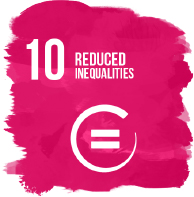Sustainable Development Goals 6: Clean Water and Sanitation
Ensure availability
and sustainable
management of water
and sanitation for all
Hundreds of millions of people throughout the world lack access to clean drinking water, sanitation, and hygiene services. COVID-19 has emphasised the need for widespread access to these services in combating the epidemic and promoting a healthy, environmentally friendly, and long-term recovery. Water is necessary for the production of food, energy, products, and services in all areas of society. Global water consumption has increased at a rate more than double that of population growth over the previous century.
Many water sources are becoming limited, contaminated, or both. In addition to water insufficiency caused by climate change, underinvestment in water and sanitation, and insufficient cooperation on transboundary waters, countries are facing growing challenges related to degraded water-related ecosystems, water scarcity caused by climate change, underinvestment in water and sanitation, and insufficient cooperation on transboundary waters.
Clean Water and Sanitation are vital to the COVID19 response worldwide.
From 67.3 per cent in 2015 to 70.7 per cent in 2020, the percentage of the world population with basic hygiene has increased. This means that at the start of the COVID-19 pandemic, 2.3 billion people which is one in every three people, still didn't have a basic handwashing facility at home meanwhile 670 million didn't have any handwashing facility at all.
Water, sanitation, and hygiene services all seem to be available to everyone beyond household use. However, globally, just two out of every three schools in the world had basic drinking water and sanitation facilities, and three out of every five schools had basic hygiene services. This indicates that at the beginning of the COVID-19 pandemic, 818 million students did not have access to basic handwashing facilities in their classrooms. In 2019, just one out of every two healthcare institutions in the least-developed countries had basic water services, two out of every five had basic sanitation services, and three out of every four had basic hygiene services. In conclusion, the governments will need to step up their efforts to guarantee that everyone has access to drinking water, sanitation, and hygiene in order to recover from the COVID-19 disaster.




Comments
Post a Comment